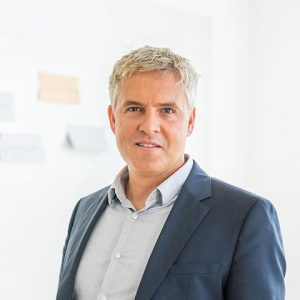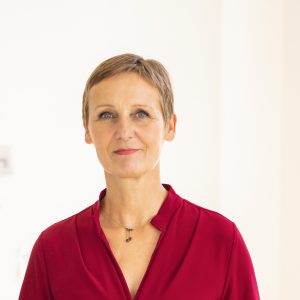This hypothesis forms the basis of our company vision. We chose to anchor the SDGs in our mission statement as a binding framework for our actions. We are becoming ever more aware of how momentous this is for us as systemic business consultants. At the same time, we are constantly discovering challenging new questions.
In early March, we discussed these questions with experts from business, science, and civil society at Systemicum 2021. And in mid-April we invited Christoph Schweifer – one of Austria’s leading experts in this area – to join us in examining the importance of the SDGs for our consultancy activities in more depth.
Using the Earthrise perspective, he took us on a journey in the truest sense of the word and asked us the following question: Imagine you are going to come back to Earth as a human, but you don’t know where. Which three things would you change on the Earth before you came back? The canvas was thus prepared.

Bill Anders Apollo Flight Journal
The vision of the SDGs is to enable a good life for everyone, while recognising the limits of the planet. Where do the SDGs come from? The sustainable development goals were agreed in 2015 as part of Agenda 2030 for Sustainable Development by all 193 nations of the United Nations General Assembly. Their objective is nothing less than to transform our world. They relate to the five Ps – people, prosperity, planet, peace, partnership – and include 17 goals and 169 targets.
Why do we need goals of this magnitude? Quite simply because the regeneration of the planet can no longer keep up with the pace of industrial exploitation. In Austria, ‘Earth overshoot day’, i.e. the day on which the global population has used up the resources that the Earth can ‘produce’ in one year, was on 8 April.
As a consultancy firm, this raises several questions for us:
- What form could systemic consultancy take against the background of these environmental, economic and social developments? How can we use the positive examples that exist, and how can we provide tailwind and confidence?
- What questions can we expect our clients to answer? What questions are our clients asking themselves right now?
- How can the SDGs, which were originally written for nations, guide the actions of business organisations?
How can global crisis situations be overcome at all? Peace researcher Dieter Senghaas has come up with an answer in the form of his civilisational hexagon – a model that identifies six building blocks as elements of civilisation and thus for maintaining peace. Social justice and the feeling of mutual dependence help individuals to control their emotions. The wave of refugees in 2015 brought home to our generation in Europe for the first time how networked we all truly are. The fact that a war ‘far away in Syria’ suddenly has a direct impact on our streets.
What does all this mean for doing business successfully and sustainably?
One conclusion from the discussion is that the current problems definitely require regulation from policymakers and institutions. There has already been some movement in this direction, with the Supply Chain Act, Taxonomy Regulation and various other laws.
At the same time, companies can anticipate these developments and actively address them. Customers, employees and other stakeholders are increasingly demanding sustainable and responsible action. We expect the companies that respond quickly to this demand to have an edge over their competitors. These ‘pioneers’ will accelerate the further evolution of the regulatory framework by bringing pressure to bear on policymakers and institutions. Pressure to ensure that laws and structural conditions are geared to doing business in a way minimises environmental impact.
Put in a nutshell by experts and pioneers:
Christoph Schweifer showed us in a very structured way which fields companies can be active in. He names the following areas as examples:
- long-term supplier relationships
- decarbonisation and more conscious use of resources
- in finance, sustainable investments and fair payment of taxes
- beneficial, not manipulative selling
What does all this mean for sustainable business consulting?
As consultants, our takeaway is that we need to open up these areas of tension, ask questions and empower companies to make even gradual changes. Some contradictions will never be resolved – but they will help us to question the path we have chosen and to re-draw it.



